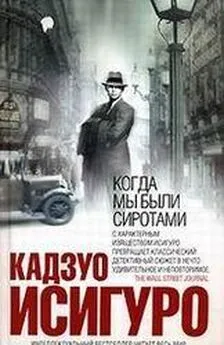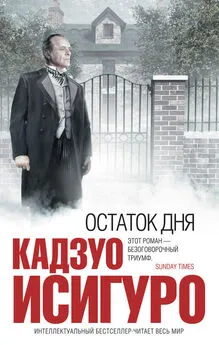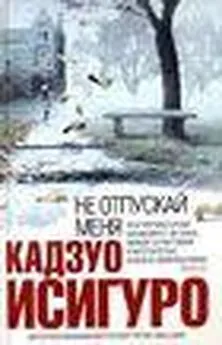Кадзуо Исигуро - Остаток дня / The Remains of the Day
- Название:Остаток дня / The Remains of the Day
- Автор:
- Жанр:
- Издательство:неизвестно
- Год:2020
- Город:Москва
- ISBN:978-5-04-112761-9
- Рейтинг:
- Избранное:Добавить в избранное
-
Отзывы:
-
Ваша оценка:
Кадзуо Исигуро - Остаток дня / The Remains of the Day краткое содержание
«Остаток дня» – дневник дворецкого, жизнь с точки зрения Бэрримора. В основе его стилистики лежит сдержанность, выявляющая себя в самой механике речи. Герой не считает возможным проявлять свои чувства, и на лингвистическом уровне эта своеобразная аскеза приводит к замечательным результатам – перед нами этакая оборотная сторона Достоевского с его неуправляемым потоком эмоций.
В 1989 году за «Остаток дня» Исигуро единогласно получил Букера (и это было, пожалуй, единственное решение Букеровского комитета за всю историю премии, ни у кого не вызвавшее протеста). Одноименная экранизация Джеймса Айвори с Энтони Хопкинсом в главной роли пользовалась большим успехом.
А Борис Акунин написал своего рода римейк «Остатка дня» – роман «Коронация».
В формате a4-pdf сохранен издательский макет книги.
Остаток дня / The Remains of the Day - читать онлайн бесплатно ознакомительный отрывок
Интервал:
Закладка:
As I remember, it was one morning a little while after my father and Miss Kenton had joined the staff, I had been in my pantry, sitting at the table going through my paperwork, when I heard a knock on my door. I recall I was a little taken aback when Miss Kenton opened the door and entered before I had bidden her to do so. She came in holding a large vase of flowers and said with a smile:
‘Mr Stevens, I thought these would brighten your parlour a little.’
‘I beg your pardon, Miss Kenton?’
‘It seemed such a pity your room should be so dark and cold, Mr Stevens, when it’s such bright sunshine outside. I thought these would enliven things a little.’
‘That’s very kind of you, Miss Kenton.’
‘It’s a shame more sun doesn’t get in here. The walls are even a little damp, are they not, Mr Stevens?’
I turned back to my accounts, saying:
‘Merely condensation, I believe, Miss Kenton.’
She put her vase down on the table in front of me, then glancing around my pantry again said:
‘If you wish, Mr Stevens, I might bring in some more cuttings for you.’
‘Miss Kenton, I appreciate your kindness. But this is not a room of entertainment. I am happy to have distractions kept to a minimum.’
‘But surely, Mr Stevens, there is no need to keep your room so stark and bereft of colour.’
‘It has served me perfectly well thus far as it is, Miss Kenton, though I appreciate your thoughts. In fact, since you are here, there was a certain matter I wished to raise with you.’
‘Oh, really, Mr Stevens.’
‘Yes, Miss Kenton, just a small matter. I happened to be walking past the kitchen yesterday when I heard you calling to someone named William.’
‘Is that so, Mr Stevens?’
‘Indeed, Miss Kenton. I did hear you call several times for “William”. May I ask who it was you were addressing by that name?’
‘Why, Mr Stevens, I should think I was addressing your father. There are no other Williams in this house, I take it.’
‘It’s an easy enough error to have made,’ I said with a small smile. ‘May I ask you in future, Miss Kenton, to address my father as “Mr Stevens”? If you are speaking of him to a third party, then you may wish to call him “Mr Stevens senior” to distinguish him from myself. I’m most grateful, Miss Kenton.’
With that I turned back to my papers. But to my surprise, Miss Kenton did not take her leave.
‘Excuse me, Mr Stevens,’ she said after a moment.
‘Yes, Miss Kenton.’
‘I am afraid I am not quite clear what you are saying. I have in the past been accustomed to addressing under-servants by their Christian names and saw no reason to do otherwise in this house.’
‘A most understandable error. Miss Kenton, However, if you will consider the situation for a moment, you may come to see the inappropriateness of someone such as yourself talking “down” to one such as my father.’
‘I am still not clear what you are getting at, Mr Stevens. You say someone such as myself, but I am as far as I understand the housekeeper of this house, while your father is the under-butler.’
‘He is of course in title the under-butler, as you say. But I am surprised your powers of observation have not already made it clear to you that he is in reality more than that. A great deal more.’
‘No doubt I have been extremely unobservant, Mr Stevens. I had only observed that your father was an able under-butler and addressed him accordingly. It must indeed have been most galling for him to be so addressed by one such as I.’
‘Miss Kenton, it is clear from your tone you simply have not observed my father. If you had done so, the inappropriateness of someone of your age and standing addressing him as ‘‘William” should have been self-evident to you.’
‘Mr Stevens, I may not have been a housekeeper for long, but I would say that in the time I have been, my abilities have attracted some very generous remarks.’
‘I do not doubt your competence for one moment, Miss Kenton. But a hundred things should have indicated to you that my father is a figure of unusual distinction from whom you may learn a wealth of things were you prepared to be more observant.’
‘I am most indebted to you for your advice, Mr Stevens. So do please tell me, just what marvellous things might I learn from observing your father?’
‘I would have thought it obvious to anyone with eyes, Miss Kenton.’
‘But we have already established, have we not, that I am particularly deficient in that respect.’
‘Miss Kenton, if you are under the impression you have already at your age perfected yourself, you will never rise to the heights you are no doubt capable of. I might point out, for instance, you are still often unsure of what goes where and which item is which.’
This seemed to take the wind out of Miss Kenton’s sails somewhat. Indeed, for a moment, she looked a little upset. Then she said:
‘I had a little difficulty on first arriving, but that is surely only normal.’
‘Ah, there you are, Miss Kenton. If you had observed my father who arrived in this house a week after you did, you will have seen that his house knowledge is perfect and was so almost from the time he set foot in Darlington Hall.’
Miss Kenton seemed to think about this before saying a little sulkily:
‘I am sure Mr Stevens senior is very good at his job, but I assure you, Mr Stevens, I am very good at mine. I will remember to address your father by his full title in future. Now, if you would please excuse me.’
After this encounter, Miss Kenton did not attempt to introduce further flowers into my pantry, and in general, I was pleased to observe, she went about settling in impressively. It was clear, furthermore, she was a housekeeper who took her work very seriously, and in spite of her youth she seemed to have no difficulty gaining the respect of her staff.
I noticed too that she was indeed proceeding to address my father as ‘Mr Stevens’. However, one afternoon perhaps two weeks after our conversation in my pantry, I was doing something in the library when Miss Kenton came in and said:
‘Excuse me, Mr Stevens. But if you are searching for your dust-pan, it is out in the hall.’
‘I beg your pardon, Miss Kenton?’
‘Your dust-pan, Mr Stevens. You’ve left it out here. Shall I bring it in for you?’
‘Miss Kenton, I have not been using a dust-pan.’
‘Ah, well, then forgive me, Mr Stevens. I naturally assumed you were using your dust-pan and had left it out in the hall. I am sorry to have disturbed you.’
She started to leave, but then turned at the doorway and said:
‘Oh, Mr Stevens. I would return it myself but I have to go upstairs just now. I wonder if you will remember it?’
‘Of course, Miss Kenton. Thank you for drawing attention to it.’
‘It is quite all right, Mr Stevens.’
I listened to her footsteps cross the hall and start up the great staircase, then proceeded to the doorway myself. From the library doors, one has an unbroken view right across the entrance hall to the main doors of th Most conspicuously, in virtually the central spot otherwise empty and highly polished floor, lay the a pan Miss Kenton had alluded to.
It struck me as a trivial, but irritating error; the dust-pan would have been conspicuous not only from the five ground-floor doorways opening on to the hall, but also from the staircase and the first-floor balconies. I crossed the hall and had actually picked up the offending item before realizing its full implication; my father, I recalled, had been brushing the entrance hall a half-hour or so earlier. At first, I found it hard to credit such an error to my father. But I soon reminded myself that such trivial slips are liable to befall anyone from time to time, and my irritation soon turned to Miss Kenton for attempting to create such unwarranted fuss over the incident.
Then, not more than a week later, I was coming down the back corridor from the kitchen when Miss Kenton came out of her parlour and uttered a statement she had clearly been rehearsing; this was something to the effect that although she felt most uncomfortable drawing my attention to errors made by my staff, she and I had to work as a team, and she hoped I would not feel inhibited to do similarly should I notice errors made by female staff. She then went on to point out that several pieces of silver had been laid out for the dining room which bore clear remains of polish. The end of one fork had been practically black. I thanked her and she withdrew back into her parlour. It had been unnecessary, of course, for her to mention that the silver was one of my father’s main responsibilities and one he took great pride in.
It is very possible there were a number of other instances of this sort which I have now forgotten. In any case, I recall things reaching something of a climax one grey and drizzly afternoon when I was in the billiard room attending to Lord Darlington’s sporting trophies. Miss Kenton had entered and said from the door:
‘Mr Stevens, I have just noticed something outside which puzzles me.’
‘What is that, Miss Kenton?’
‘Was it his lordship’s wish that the Chinaman on the upstairs landing should be exchanged with the one outside this door?’
‘The Chinaman, Miss Kenton?’
‘Yes, Mr Stevens. The Chinaman normally on the landing you will now find outside this door.’
‘I fear, Miss Kenton, that you are a little confused.’
‘I do not believe I am confused at all, Mr Stevens. I make it my business to acquaint myself with where objects properly belong in a house. The Chinamen, I would suppose, were polished by someone then replaced incorrectly. If you are sceptical, Mr Stevens, perhaps you will care to step out here and observe for yourself.’
‘Miss Kenton, I am occupied at present.’
‘But, Mr Stevens, you do not appear to believe what I am saying. I am thus asking you to step outside this door and see for yourself.’
‘Miss Kenton, I am busy just now and will attend to the matter shortly. It is hardly one of urgency.’
You accept then, Mr Stevens, that I am not in error on this point.’
‘I will accept nothing of the sort, Miss Kenton, until I have had a chance to deal with the matter. However, I am occupied at present.’
I turned back to my business, but Miss Kenton remained in the doorway observing me. Eventually, she said:
I can see you will be finished very shortly, Mr Stevens. I will await you outside so that this matter may be finalized when you come out.’
‘Miss Kenton, I believe you are according this matter an urgency it hardly merits.’
But Miss Kenton had departed, and sure enough, as I continued with my work, an occasional footstep or some other sound would serve to remind me she was still there outside the door. I decided therefore to occupy myself with some further tasks in the billiard room, assuming she would after a while see the ludicrousness of her position and leave. However, after some time had passed, and I had exhausted the tasks which could usefully be achieved with the implements I happened to have at hand, Miss Kenton was evidently still outside. Resolved not to waste further time on account of this childish affair, I contemplated departure via the french windows. A drawback to this plan was the weather – that is to say, several large puddles and patches of mud were in evidence – and the fact that one would need to return to the billiard room again at some point to bolt the french windows from the inside. Eventually, then, I decided the best strategy would be simply to stride out of the room very suddenly at a furious pace. I thus made my way as quietly as possible to a position from which I could execute such a march, and clutching my implements firmly about me, succeeded in propelling myself through the doorway and several paces down the corridor before a somewhat astonished Miss Kenton could recover her wits. This she did, however, rather rapidly and the next moment I found she had overtaken me and was standing before me, effectively barring my way.
Читать дальшеИнтервал:
Закладка:



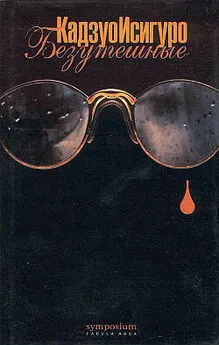

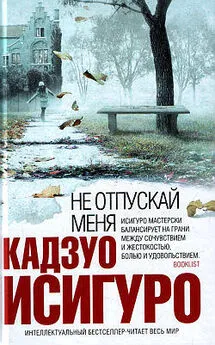
![Кадзуо Исигуро - Не отпускай меня [litres]](/books/1095846/kadzuo-isiguro-ne-otpuskaj-menya-litres.webp)
